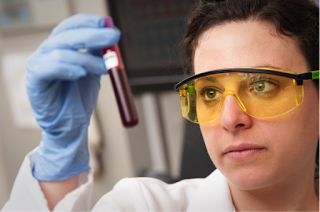CANCER DIGEST – Dec. 26, 2016 – Newborns with a common virus in the herpes family may have an increased risk of developing acute lymphocytic leukemia (ALL), according to new research. The study suggests the risk is even greater in Hispanic children.
The new research led by Stephen Francis, PhD, assistant professor of epidemiology at the University of Nevada and University of California, San Francisco was published online in Blood, the Journal of the American Society of Hematology (ASH).
Up to 80 percent of Americans are infected with congenital cytomegalovirus (CMV), which is normally inactive, causing few symptoms. But during pregnancy the virus can flare up and be transmitted to the fetus, sometimes causing serious consequences such as birth defects and hearing loss in newborns.
In the study, the researchers first identified all known infections present in the bone marrow of 127 children diagnosed with ALL and 38 children diagnosed with acute myeloid leukemia (AML). A state-of-the-art assay screened samples for all known viruses. They detected CMV DNA in the bone marrow samples from children with ALL but rarely in those with AML.
Next, the scientists used an ultra-sensitive digital test to examine newborn blood samples for CMV from 268 children who went on to develop ALL. They compared the samples with healthy children (270). ALL typically develops in children between the ages of two and six.
The study shows that children who went on to develop ALL are 3.71 times more likely to have CMV at birth. When they looked at babies with Hispanic ethnicity they found a 5.9-fold increased risk of ALL in those infected before birth with CMV. This is significant because Hispanics are at the highest risk for developing ALL.



No comments:
Post a Comment